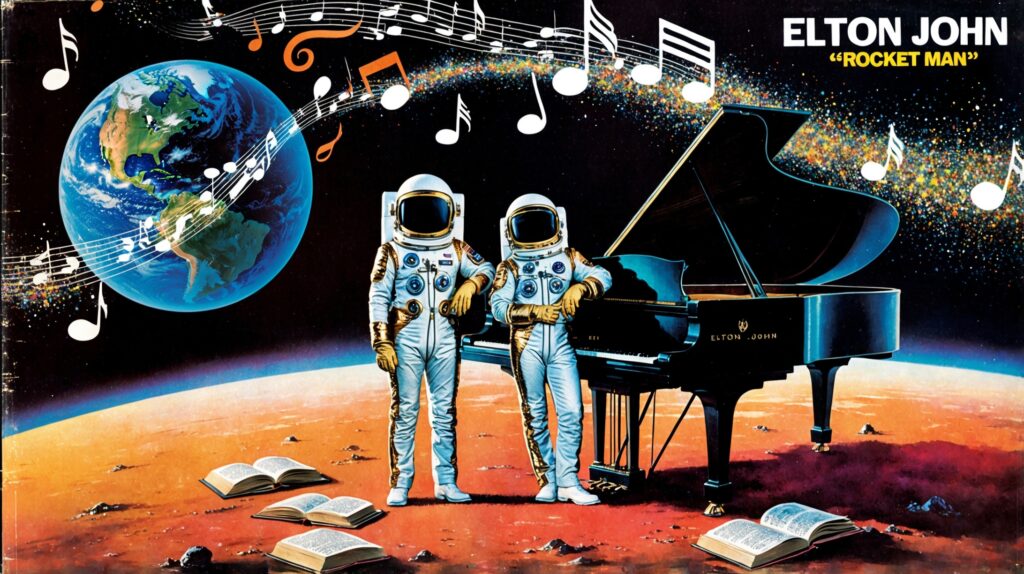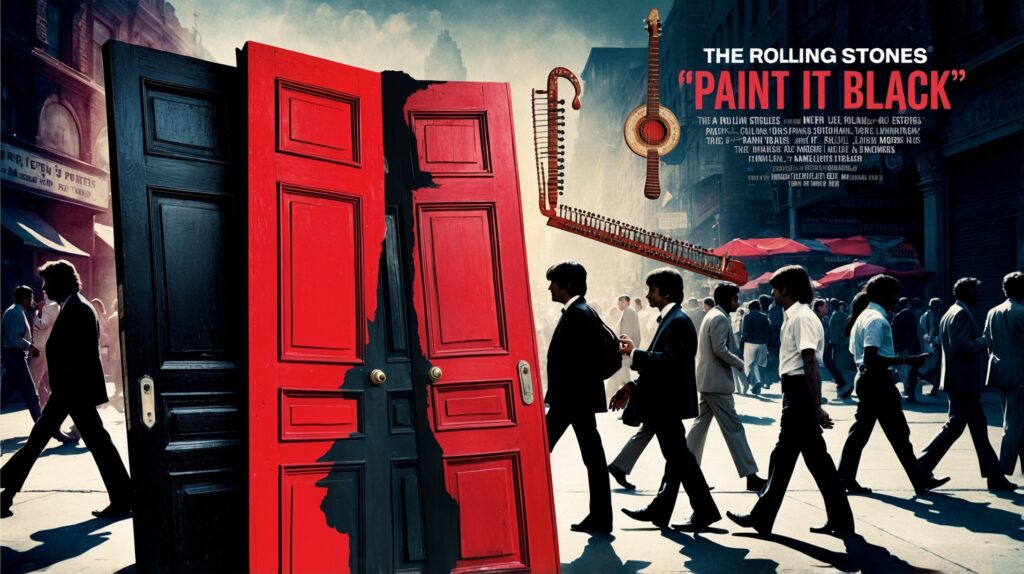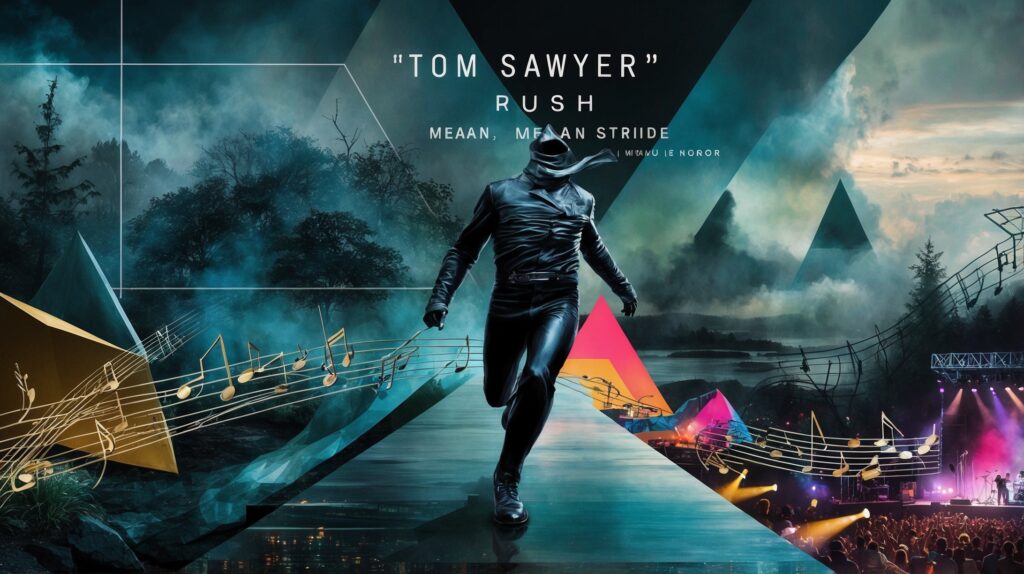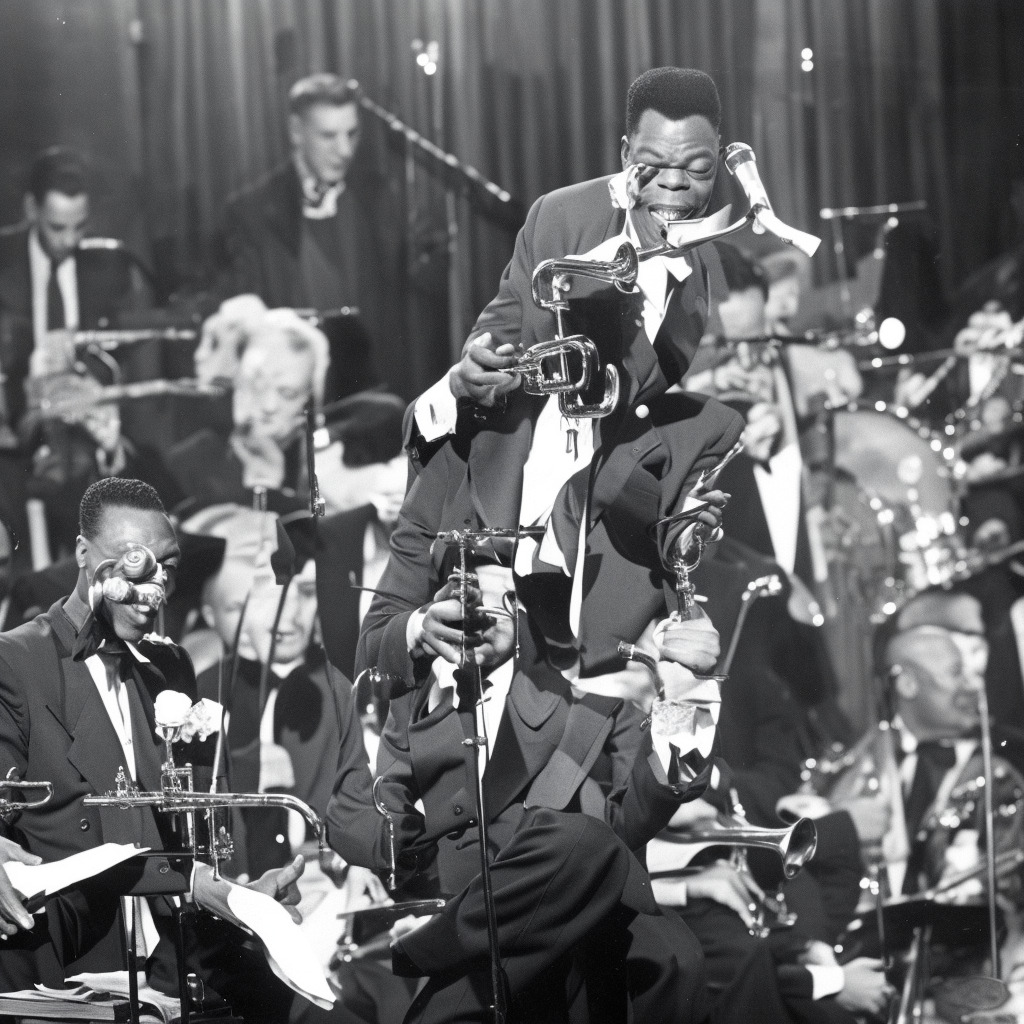Elton John: The Rocket Man Behind the Ballads
Discover how Elton John, the brilliant mind behind ‘Rocket Man,’ soared to fame. Explore his partnership with Bernie Taupin and the cultural impact of this iconic track during the space-obsessed era of the early ’70s.

Elton John, born Reginald Kenneth Dwight in 1947, is a legendary British artist whose illustrious career spans over five decades. Known for his flamboyant style and evocative performances, Elton holds a special place in the hearts of millions worldwide. The song ‘Rocket Man,’ released in 1972, is one of his most defining tracks, establishing him as a major force in the music industry. The song explored themes of isolation and yearning—feelings that resonated deeply during the era it was released, making it a significant milestone in Elton John’s extensive discography.
Growing up in a musically-inclined family, Elton’s early life was heavily influenced by the sounds of great rock and roll. His career began taking shape in the late 1960s when he formed a partnership with lyricist Bernie Taupin. Together, they would become one of the most prolific and successful songwriting duos in history. Their creative chemistry produced a string of hits, including ‘Rocket Man,’ which embodied their ability to blend intricate lyrics with compelling melodies. This collaboration played a pivotal role in catapulting Elton’s career to unprecedented heights.
At the time of ‘Rocket Man’s’ release, the world was enamored with the possibilities beyond Earth, in part due to the burgeoning space exploration of the 1960s and early 1970s. The song’s initial reception was overwhelmingly positive, lauded for its innovative fusion of rock and pop with introspective lyrics—a distinctive shift in the music scene. Elton’s ability to capture the zeitgeist of the time while crafting music that remains timeless illustrates the exceptional artistry he brought to the world.
The Mastermind Behind the Melodies: Bernie Taupin
Delve into the world of Bernie Taupin, the lyrical genius behind Elton John’s ‘Rocket Man,’ whose evocative words have resonated with audiences worldwide.
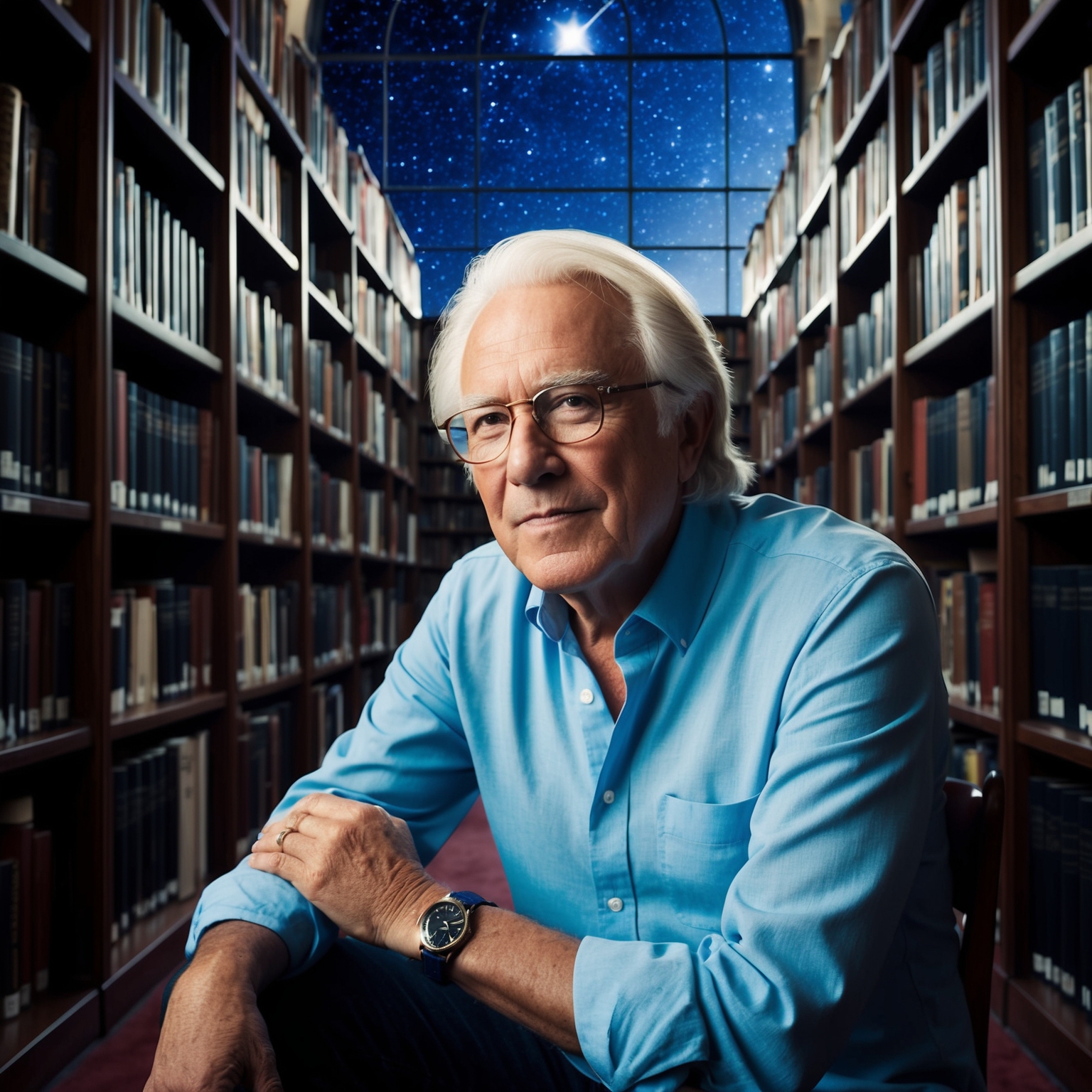
Background and Career: Bernie Taupin, the legendary lyricist behind Elton John’s “Rocket Man,” has etched his name in the annals of music history alongside his longtime collaborator. Born in 1950, Taupin grew up in a small village in England, where his exposure to books and nature fostered his creative imagination. At a young age, he discovered a penchant for poetry, which eventually became his ticket to fame in the music industry. Taupin’s career took off when he responded to an advertisement placed by Liberty Records, seeking new talent. Although he first aimed to be a singer, it was his mastery of words that captured the attention of Elton John, paving the way for one of the most iconic partnerships in rock history.
Musical Style and Influences: Taupin’s lyrics are renowned for their vivid storytelling and emotional depth, traits that resonate deeply in “Rocket Man.” Influenced by literature, cinema, and the cultural shifts of the 60s and 70s, Taupin’s style blends introspection with broad narratives. His influences traverse beyond music, drawing inspiration from American culture and Western-style cinema, which is evident in the cinematic quality of his lyrics. Taupin’s ability to seamlessly intertwine personal reflections with universal themes is a hallmark of his craft.
Role in the Song’s Creation: In the creation of “Rocket Man,” Bernie Taupin’s contribution was instrumental—not only did he craft the poignant lyrics, but he also shaped the song’s narrative essence. The song reflects Taupin’s fascination with space exploration and existential themes, capturing the loneliness experienced by astronauts as a metaphor for the human condition. While Elton John masterfully composed the music, it was Taupin who penned the exploratory and haunting words that struck a chord with listeners globally, cementing the song’s place in rock history.
Accolades and Interpretations: ‘Rocket Man’ Takes Off
Elton John’s ‘Rocket Man’ has become a timeless piece, widely celebrated across various media. Notable covers have been crafted by artists like My Morning Jacket, while its appearances in movies like ‘Sing’ and video games such as ‘Guitar Hero 5’ affirm its enduring cultural impact.

Rocket Man, a masterpiece by Elton John, has achieved substantial recognition over the decades. While the track itself may not have directly secured major award wins at the time of its release, it has been universally commended for its unique style and poignant storytelling. The song’s legacy is marked by its inclusion in prominent rankings, such as Rolling Stone’s ‘500 Greatest Songs of All Time,’ positioning it as a musical gem that endures through the ages. Its resonance with audiences around the globe is further validated by its enduring presence in popular culture and music anthologies.
In addition to critics’ admiration, Rocket Man has inspired countless artists to try their hand at reinterpreting the iconic tune. Some notable covers include renditions by the folk rock band My Morning Jacket, whose ethereal version captures the existential loneliness of the original. Artists across various genres, from singer-songwriter Jason Mraz to the duo as diverse as Iron & Wine and The Flaming Lips, have paid tribute to Elton John’s work, showcasing the track’s widespread influence and appeal.
The track’s reach extends beyond just albums and covers, as Rocket Man has permeated various facets of media, demonstrating its broad cultural appeal. The song has made appearances in several films, such as the animated movie ‘Sing,’ where it serves as a whimsical anchor of nostalgic yet forward-thinking themes. Television series like ‘Californication’ and video games such as ‘Guitar Hero 5’ have also embraced the track, highlighting its dynamic and versatile narrative voice that speaks to both classic rock enthusiasts and modern audiences alike.
Rocket Man’s Stellar Climb to Chart Success
Rocket Man’ by Elton John soared high on the charts, reaching number six in the UK and the US, and number two in Canada. Its success solidified John’s status as a music legend.
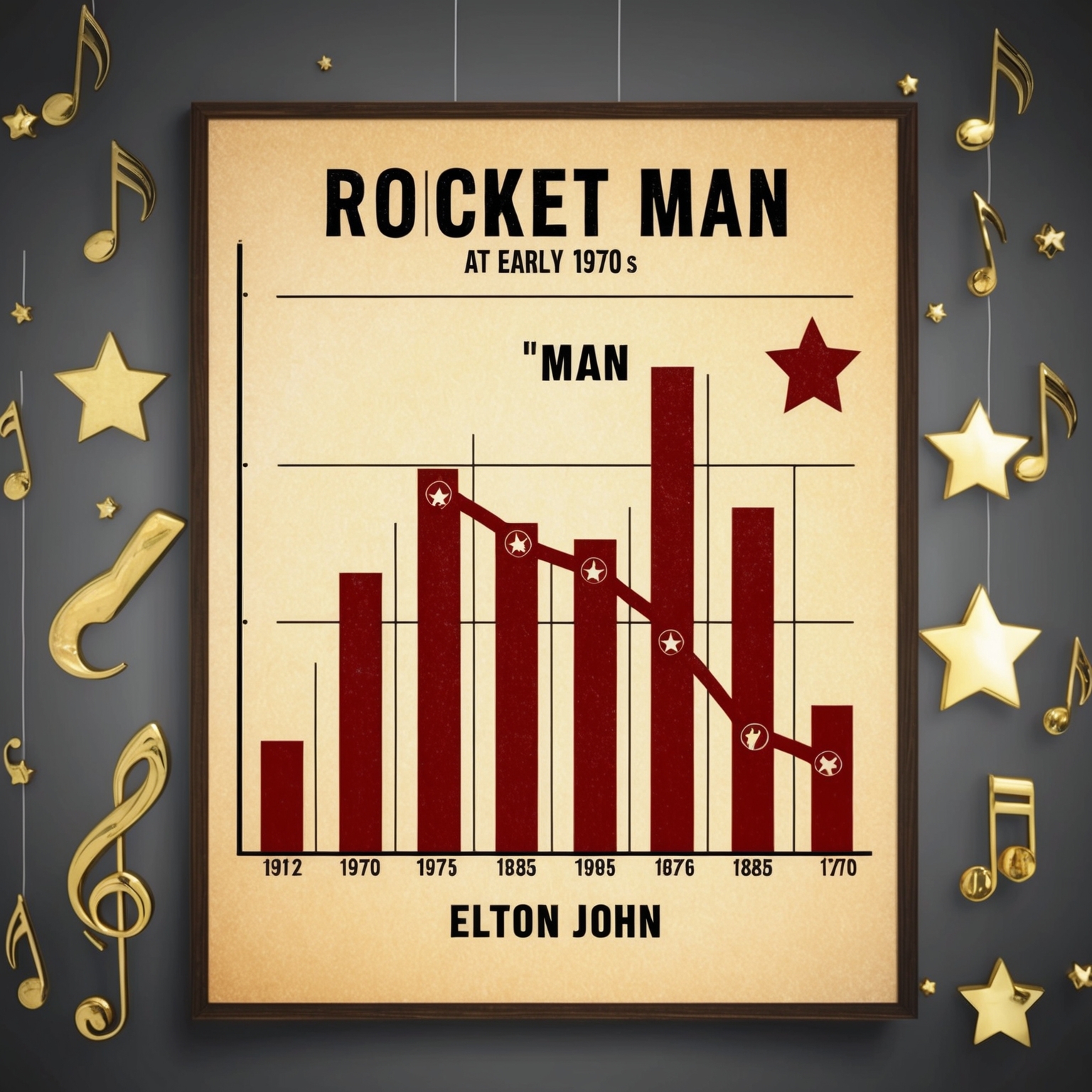
When Elton John’s ‘Rocket Man’ was released on April 14, 1972, it quickly found its place in the constellation of pop hits. The single debuted as part of the album ‘Honky Château’ and marked a significant point in John’s career. The song soared to number six on the UK Singles Chart and managed to climb to number two in Canada. In the United States, it achieved comparable success, reaching number six on the Billboard Hot 100. This chart performance established ‘Rocket Man’ as one of the top hits of 1972, making it a standout track in John’s extensive discography.
Compared to other hits of the era, ‘Rocket Man’ managed to carve out its niche, primarily due to its poignant lyrics and innovate production. While the charts at the time were crowded with disco and rock anthems, John’s unique blend of pop rock, underlined by Bernie Taupin’s metaphorical lyrics, helped it to stand out. The song’s success was not an isolated incident but a continuation of John’s growing popularity, following hits like ‘Your Song’ and ‘Tiny Dancer’. It didn’t just peak the charts; it was pivotal in solidifying John’s status as a music icon.
Marketing strategies played a crucial role in the song’s success. John’s label, DJM Records, capitalized on his rising fame by promoting ‘Rocket Man’ through a series of media appearances and live performances. The captivating nature of the song and its universal appeal helped it resonate with both critics and the public. Over time, ‘Rocket Man’ became more than just a hit; it evolved into a cultural anthem, often referenced in various media forms. The song’s streaming figures remain impressive, with millions of plays, testifying to its enduring legacy and continued impact on new generations of listeners.
A Visual Odyssey: The Rocket Man Experience
Explore the visual journey of Elton John’s “Rocket Man,” from fan videos to iconic live performances, capturing the timeless essence of this classic.

Although the iconic track “Rocket Man” by Elton John does not have an official music video produced at the time of its release in 1972, its visual legacy has been preserved and evolved through various adaptations and live performances over the years. One of the most memorable portrayals can be found in the 2019 biopic film, ‘Rocketman,’ where the song serves as a pivotal emotional and narrative moment, intertwining Elton John’s audacious rise to stardom with dreamy, surrealistic visuals.
In the absence of a traditional music video, several fan-made videos have taken to showcasing this timeless classic, often exploring space themes and personal introspection. These videos typically combine space exploration footage with live performances of the song, offering a modern interpretation consistent with the song’s themes of isolation and existential reflection. The use of ethereal imagery and vast cosmic landscapes aligns well with the audio’s melancholy and wonder, capturing the spirit of a ‘Rocket Man’ caught between Earthly ties and astral journeys.
Elton John’s live performances of “Rocket Man” have also contributed significantly to its visual canon. For decades, his concerts have featured elaborate stage setups and light shows that enhance the song’s dreamlike quality. His flamboyant stage presence and costume design add an unforgettable visual element, elevating each performance to an immersive experience that stands as a proxy to an official video. These live renditions have been critical in securing the lasting popularity and influence of “Rocket Man,” testament to the timeless appeal and universal resonance of its narrative.
The Intricate Musical Fabric of ‘Rocket Man’
Explore the intricate musical structure of Elton John’s ‘Rocket Man’, highlighting its key, chord progressions, melody, rhythm, and instrumental arrangements that make it a timeless piece.

Rocket Man by Elton John is a fine example of intricate musical craftsmanship that intertwines poignant lyrics with a complex and evocative arrangement. The song is written in the key of C major, which lends it a warm and uplifting feel, despite the melancholic theme. The chord progression features alternating C, F, and G major chords, creating a sense of familiarity and comfort. Complementing the chords is a moderate tempo that aligns perfectly with the reflective nature of the song, allowing the listener to immerse themselves deeply in its narrative.
Melody, Harmony, and Rhythm: The melody of Rocket Man is both memorable and accessible, characterized by flowing vocal lines that emphasize simplicity and emotion. Harmonically, the song uses lush arrangements, with layered backing vocals that add depth and richness to the overall sound. The rhythm is steady and measured, contributing to the contemplative mood and embodying the protagonist’s journey through space and introspection. The gentle rhythm ensures the song’s accessibility, inviting repeated listening.
Instrumental Texture and Studio Story: Instrumentally, ‘Rocket Man’ relies heavily on piano, which anchors the song with its resonant and grounding presence. Synthesizers in the song offer a cosmic quality that enhances the space travel theme, while guitars provide a crisp and resonant counterpoint. The minimalist yet effective percussion maintains a steady beat, underscoring the journey theme. Recorded at Château d’Hérouville in France, the song benefits from meticulous production by Gus Dudgeon, who captured the balance between the human and the ethereal. Anecdotal accounts reveal that the recording sessions were vibrant and innovative, highlighting Elton John and his team’s commitment to breaking musical boundaries.
Comparative Analysis: In the context of Elton John’s discography, ‘Rocket Man’ signifies a pivotal moment in his artistic journey. Released in 1972 as part of the album Honky Château, it marks a shift towards more introspective themes and sophisticated compositions compared to his earlier work. This evolution is prominent when compared to earlier hits like ‘Your Song’, showing growth in lyrical depth, with a balance of introspective musings and universal themes. ‘Rocket Man’ paves the way for subsequent explorations in concept-driven music by Elton John, influencing future albums with its blend of narrative lyricism and sophisticated musical composition.
Exploring the Depths of a Cosmic Journey
Dive into the rich lyrical tapestry of “Rocket Man,” where themes of isolation, existential contemplation, and a longing for connection converge through an astronaut’s journey. Explore how its narrative style, literary devices, and cultural contexts contribute to its timeless resonance.
Zero hour nine AM
And I’m gonna be high as a kite by then
I miss the earth so much I miss my wife
It’s lonely out in space
On such a timeless flight
And I think it’s gonna be a long long time
‘Till touch down
 Elton John’s “Rocket Man” is a cornerstone of 1970s music, reflecting on the lyrical journey of an astronaut venturing into the unknown. At first glance, the song conjures images of space travel, yet its themes expand beyond the literal journey. These lyrics artfully explore feelings of isolation, displacement, and a yearning for connection—emotions deeply relatable to many listeners, especially during a time of significant societal shifts. The song was released in 1972, during an era marked by space exploration and cultural change, making its themes resonate even further with audiences.
Elton John’s “Rocket Man” is a cornerstone of 1970s music, reflecting on the lyrical journey of an astronaut venturing into the unknown. At first glance, the song conjures images of space travel, yet its themes expand beyond the literal journey. These lyrics artfully explore feelings of isolation, displacement, and a yearning for connection—emotions deeply relatable to many listeners, especially during a time of significant societal shifts. The song was released in 1972, during an era marked by space exploration and cultural change, making its themes resonate even further with audiences.
The narrative unfolds through a first-person perspective, placing the listener in the shoes of the protagonist. As the astronaut reflects on their voyage away from home, the lyrics weave a story that touches on longing and introspection. Lines like “I miss the Earth so much, I miss my wife” convey a profound sense of loneliness while traversing the vastness of space. This narrative style invites listeners into intimate musings, drawing them into the emotional core of the song.
Literary devices are skillfully employed, with metaphors like “high as a kite” symbolizing both literal and emotional elevation. The repeated refrain “And I think it’s gonna be a long, long time” creates a poignant sense of uncertainty and anticipation. Each line is carefully crafted to evoke emotions, enhancing the narrative’s impact. Comparatively, “Rocket Man” shares thematic elements with other works of the era, like David Bowie’s “Space Oddity,” both using space as a backdrop to explore existential themes. Yet, Elton John’s piece remains distinct due to its unique blend of personal reflection and universal themes.
Cultural and social references subtly underpin the lyrics, reflecting the era’s fascination with space travel, one underscored by societal upheavals and quests for identity. This backdrop heightened the song’s relatability, appealing to a broad audience navigating their struggles. Furthermore, the song’s emotional depth and intriguing wordplay beckon listeners to interpret it in diverse ways, adding layers to its enduring appeal.
?️? Did you know Elton John’s Rocket Man was inspired by a Ray Bradbury sci-fi story? Blast off into this iconic tune! ?? #EltonJohn #RocketMan #MusicTrivia #BlastOff tinyurl.com/5n7su7hy
Click to Tweet

